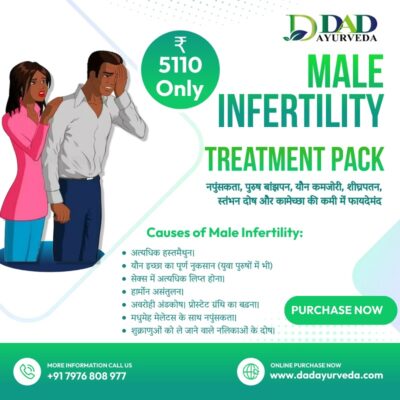Services
We Can Help Treat Azoospermia Male Infertility
Understanding Male Infertility
Male infertility is an issue that affects many couples who are trying to conceive. It refers to the inability of a man to impregnate his female partner despite regular unprotected sexual intercourse. In this article, we will explore the causes, symptoms, and treatment options for male infertility.
Causes of Male Infertility:
There are various factors that can contribute to male infertility. These include:
1. Low sperm count: A low sperm count, also known as oligospermia, occurs when a man ejaculates with fewer sperm than normal. This can significantly reduce the chances of fertilizing an egg.
2. Poor sperm motility: Sperm with poor motility have difficulty swimming properly and reaching the egg. This can make conception challenging.
3. Abnormal sperm shape: The shape of sperm, known as morphology, is important for successful fertilization. If sperm have abnormal shapes, it can hinder their ability to penetrate the egg.
4. Hormonal imbalances: Imbalances in hormones such as testosterone can affect sperm production and function.
5. Varicocele: A varicocele is a condition in which the veins in the scrotum become enlarged. This can elevate the temperature in the testicles, impacting sperm health.
6. Infections: Certain infections, such as sexually transmitted infections or inflammation of the reproductive organs, can impair sperm production and function.
Symptoms of Male Infertility:
Male infertility often has no obvious symptoms, and the inability to conceive may be the only indication. However, there are certain signs that can suggest infertility issues:
1. Difficulty achieving or maintaining an erection during sexual intercourse.
2. Pain, swelling, or lumps in the testicles or scrotum.
3. Abnormal ejaculation, such as premature ejaculation or retrograde ejaculation (where semen travels back into the bladder instead of exiting through the penis).
Treatment Options for Male Infertility:
Treating male infertility depends on the underlying cause. Some of the common treatment options include:
1. Lifestyle changes: Making certain lifestyle modifications, such as quitting smoking, reducing alcohol consumption, maintaining a healthy weight, and managing stress, can improve fertility.
2. Medications: Certain medications can help address hormonal imbalances or treat infections that may be causing infertility.
3. Assisted reproductive techniques: In some cases, assisted reproductive techniques like in vitro fertilization (IVF) or intracytoplasmic sperm injection (ICSI) may be recommended. These procedures involve the manipulation of sperm and eggs to facilitate fertilization.
4. Surgery: Surgical procedures, such as varicocele repair or sperm retrieval, may be performed to repair anatomical abnormalities or retrieve sperm for assisted reproduction.
Conclusion:
Male infertility is a common issue that can have a significant impact on couples trying to conceive. By understanding the causes, symptoms, and treatment options available, couples can seek appropriate medical help and explore options for starting a family.
Infertility is a condition that affects many couples around the world. Both men and women can experience fertility issues, and one of the most common problems in men is azoospermia. Azoospermia is a condition where there is no sperm present in the ejaculate. This can be caused by various factors such as hormonal imbalances, genetic disorders, or blockages in the reproductive system. While conventional medicine offers some treatment options, Ayurveda, the traditional medicine system of India, also provides effective remedies for azoospermia.
Keyword: azoospermia, azoospermia treatment, obstructive azoospermia, non obstructive azoospermia, prolistem, azoospermia treatment cost,
Ayurveda, an ancient holistic approach to healing, believes that azoospermia is primarily caused by an imbalance in the doshas, the vital energies of the body. According to Ayurvedic principles, the imbalance can be corrected through natural remedies and lifestyle changes.
One of the key remedies for azoospermia in Ayurveda is the use of herbs and herbal formulations. Certain herbs, such as Ashwagandha, Shilajit, and Kapikachhu, have been traditionally used to improve sperm count and quality. These herbs are believed to nourish the reproductive system, balance the hormones, and enhance overall sexual health.
In addition to herbs, Ayurveda also emphasizes the importance of following a healthy diet and lifestyle. A balanced diet that includes fresh fruits, vegetables, whole grains, and lean proteins can provide essential nutrients for reproductive health. It is also recommended to avoid excessive alcohol consumption, smoking, and stress, as they can negatively impact sperm production.
Ayurveda also recommends specific practices and therapies to improve fertility. Panchakarma, a detoxification therapy, is often recommended to cleanse the body of toxins and restore balance. Additionally, Ayurvedic massages and yoga postures that focus on the pelvic area can help improve blood circulation to the reproductive organs and support healthy sperm production.
While Ayurvedic remedies for azoospermia can be beneficial, it is important to consult with a qualified Ayurvedic practitioner before starting any treatment. They can assess the individual’s specific condition and provide personalized recommendations. It is also important to note that Ayurvedic remedies may take time to show results, and consistency is key in following the prescribed treatment plan.
In conclusion, Ayurveda offers effective remedies for azoospermia, addressing the root cause of the condition and promoting overall reproductive health. By incorporating herbs, lifestyle changes, and specific therapies, couples struggling with azoospermia can explore natural options to enhance fertility and increase their chances of conceiving.
Understanding Azoospermia
Azoospermia is a condition that can be classified into two types: obstructive and non-obstructive. In obstructive azoospermia, there is a physical blockage in the male reproductive system that prevents sperm from being ejaculated. This can be due to previous infections, surgical procedures, or congenital abnormalities. On the other hand, non-obstructive azoospermia occurs when the testicles are unable to produce sperm. This can be caused by hormonal imbalances, genetic disorders, or certain medications.
Ayurvedic Perspective on Azoospermia
In Ayurveda, azoospermia is believed to be caused by an imbalance in the doshas, which are the fundamental energies that govern the body and mind. According to Ayurvedic principles, the reproductive system relies on the proper functioning of all the doshas â Vata, Pitta, and Kapha. When there is an imbalance in these doshas, it can lead to various reproductive disorders, including azoospermia.
Dietary Recommendations for Azoospermia
In Ayurveda, diet plays a crucial role in maintaining overall health and treating various disorders, including infertility. For men with azoospermia, it is important to follow a nutritious and balanced diet to support the reproductive system. Some key dietary recommendations for azoospermia include:
Lifestyle Modifications
In addition to dietary changes, certain lifestyle modifications can also be beneficial for men with azoospermia:
1. Avoid exposure to toxins: Excessive exposure to certain chemicals and toxins can negatively impact sperm production. It is important to avoid or minimize exposure to substances such as pesticides, heavy metals, and certain medications or drugs.
2. Maintain a healthy weight: Obesity or being overweight can disrupt hormone levels and impair fertility. Men with azoospermia should aim to maintain a healthy weight through regular exercise and a balanced diet.
3. Manage stress levels: Chronic stress can interfere with sperm production. Engaging in stress-reducing activities such as exercise, meditation, and relaxation techniques can help improve fertility.
4. Quit smoking and limit alcohol consumption: Both smoking and excessive alcohol intake have been linked to reduced sperm quality and quantity. Men with azoospermia should quit smoking completely and limit alcohol consumption to improve their chances of conceiving.
5. Avoid excessive heat exposure: High temperatures, such as in saunas, hot tubs, or tight-fitting underwear, can impair sperm production. It is advisable to avoid prolonged exposure to heat in order to maintain optimal sperm health.
6. Get enough sleep: Inadequate sleep can disrupt hormonal balance and affect sperm production. Men should aim for 7-9 hours of quality sleep each night to support fertility.
7. Stay hydrated: Dehydration can lead to a decrease in semen volume and sperm concentration. It is important to drink enough water throughout the day to stay properly hydrated.
It is essential to consult with a healthcare professional or a fertility specialist before making any significant lifestyle changes to ensure they are appropriate and effective for your specific situation.
Herbal Remedies for Azoospermia
Ayurveda utilizes various herbs and botanicals that can help improve fertility and treat azoospermia:
Ayurveda, an ancient Indian system of medicine, offers a range of herbs and botanicals that have been used for centuries to improve fertility and treat azoospermia, a condition characterized by the absence of sperm in the semen. These natural remedies work holistically to enhance reproductive health and address the underlying causes of infertility.
One commonly prescribed herb in Ayurveda is Ashwagandha, also known as Indian ginseng. Ashwagandha has been shown to increase sperm count, motility, and overall semen quality. It also acts as an adaptogen, reducing stress and improving overall hormonal balance, which can have a positive impact on male fertility.
Another herb used in Ayurvedic medicine is Shatavari, a powerful adaptogenic herb that supports healthy hormone levels and helps optimize the functioning of the male reproductive system. Shatavari is believed to improve sperm production and enhance the quality of sperm, making it an effective treatment option for azoospermia.
Safed Musli is another herb commonly used to improve fertility in Ayurveda. It is known for its aphrodisiac properties and has been found to increase sperm count and motility. Safed Musli also helps in improving sexual performance and stamina, which can be beneficial for couples trying to conceive.
Additionally, Ayurvedic practitioners may recommend the use of Gokshura, an herb that supports healthy urinary function and promotes the production of healthy sperm. Gokshura is believed to strengthen the reproductive organs and enhance the overall reproductive health of men.
Apart from these individual herbs, Ayurveda also uses various herbal formulations or mixtures known as Rasayanas, which are specifically formulated to enhance fertility and treat male infertility issues like azoospermia. These Rasayanas are typically made from a combination of herbs and botanicals that work synergistically to support reproductive health.
It is important to note that before using any Ayurvedic herbs or botanicals for fertility treatment, it is advisable to consult with a qualified Ayurvedic practitioner or healthcare professional. They can assess your individual health condition and provide personalized recommendations tailored to your specific needs. Additionally, it is crucial to maintain a healthy lifestyle, including a balanced diet, regular exercise, and stress management, to optimize fertility and support overall reproductive health.
Ayurvedic Therapies for Azoospermia
Along with dietary changes and herbal remedies, Ayurveda offers specific therapies that can help treat azoospermia:
1. Panchakarma: This is a detoxification therapy that aims to eliminate toxins from the body and restore balance. It involves various cleansing procedures such as massage, herbal steam therapy, and enemas. Panchakarma helps improve sperm production by enhancing overall reproductive health.
2. Virechana: This is a therapeutic purgation therapy that involves the administration of herbal laxatives to cleanse the intestines. It helps remove excess Pitta (one of the three doshas in Ayurveda) from the body, which is believed to contribute to azoospermia.
3. Vasti: This therapy involves the administration of herbal oils or decoctions through the rectum. It helps nourish the reproductive organs and promote healthy sperm production. Vasti also helps balance the Vata dosha, which plays a role in male fertility.
4. Ayurvedic Medications: Ayurvedic practitioners may prescribe specific herbal formulations to improve semen quality and quantity. These formulations may contain herbs like Ashwagandha, Shatavari, Kapikacchu, and Gokshura, which are known to have aphrodisiac and fertility-enhancing properties.
5. Yoga and Pranayama: Certain yoga asanas (postures) and pranayama (breathing exercises) can help improve blood flow to the reproductive organs and enhance overall reproductive health. Practices like the Bhujangasana (cobra pose) and Kapalabhati (skull-shining breath) are believed to be beneficial for treating azoospermia.
It is important to note that Ayurvedic therapies should always be undertaken under the guidance of a qualified Ayurvedic practitioner. They will be able to assess your individual constitution (dosha) and recommend the most appropriate therapies and herbal formulations for your specific condition. Additionally, it is always advisable to consult with a medical professional to rule out any underlying medical conditions that may be causing azoospermia.
The Importance of Consulting an Ayurvedic Practitioner
While Ayurveda offers effective remedies for azoospermia, it is important to consult with a qualified Ayurvedic practitioner before starting any treatment. The practitioner will assess your individual constitution and provide personalized recommendations based on your specific needs. They will also monitor your progress and make any necessary adjustments to the treatment plan.
Azoospermia is a condition where a man has no measurable level of sperm in his semen. This can lead to infertility and difficulty in conceiving a child. Ayurveda, the traditional system of medicine in India, offers various remedies for treating azoospermia.
However, it is crucial to consult with a qualified Ayurvedic practitioner before starting any treatment. This is because Ayurveda takes into account an individual’s unique constitution, known as doshas, which are Vata, Pitta, and Kapha. The practitioner will assess your doshic imbalance and provide personalized recommendations based on your specific needs.
The treatment for azoospermia in Ayurveda typically includes a combination of herbal medicines, dietary changes, lifestyle modifications, and detoxification therapies. These remedies aim to balance the doshas and improve the quality and quantity of sperm.
During the consultation, the Ayurvedic practitioner will thoroughly analyze your medical history, lifestyle, and any underlying imbalances that may be contributing to azoospermia. They may perform diagnostic procedures such as pulse examination (Nadi Pariksha) or tongue examination (Jivha Pariksha) to gain a deeper understanding of your condition.
Based on the assessment, the practitioner will create a customized treatment plan tailored to your needs. This may involve prescribing specific herbs and formulations known to improve sperm production and motility, reduce oxidative stress, and enhance overall reproductive health.
Regular follow-ups with the Ayurvedic practitioner are essential to monitor your progress and make any necessary adjustments to the treatment plan. They will evaluate the effectiveness of the remedies and modify them accordingly. This ongoing guidance and support are crucial for achieving positive outcomes in treating azoospermia.
It is important to note that Ayurvedic remedies for azoospermia may take time to show noticeable results. Patience and consistency are key when following the prescribed treatment plan. Additionally, lifestyle factors such as stress management, regular exercise, adequate sleep, and a balanced diet play a vital role in improving reproductive health.
In conclusion, Ayurveda offers effective remedies for azoospermia. However, it is crucial to consult with a qualified Ayurvedic practitioner who can provide personalized recommendations based on your individual constitution and needs. Regular follow-ups and adherence to the prescribed treatment plan are necessary for achieving positive results in treating azoospermia.
Conclusion
Azoospermia is a condition that can significantly impact male fertility. While conventional medicine provides treatment options, Ayurveda offers a holistic approach to address the root cause of the condition. By making dietary changes, adopting a healthy lifestyle, using herbal remedies, and undergoing specific therapies, Ayurveda can help improve sperm count, quality, and motility. However, it is important to consult with an Ayurvedic practitioner to receive personalized recommendations and appropriate guidance for treating azoospermia.









